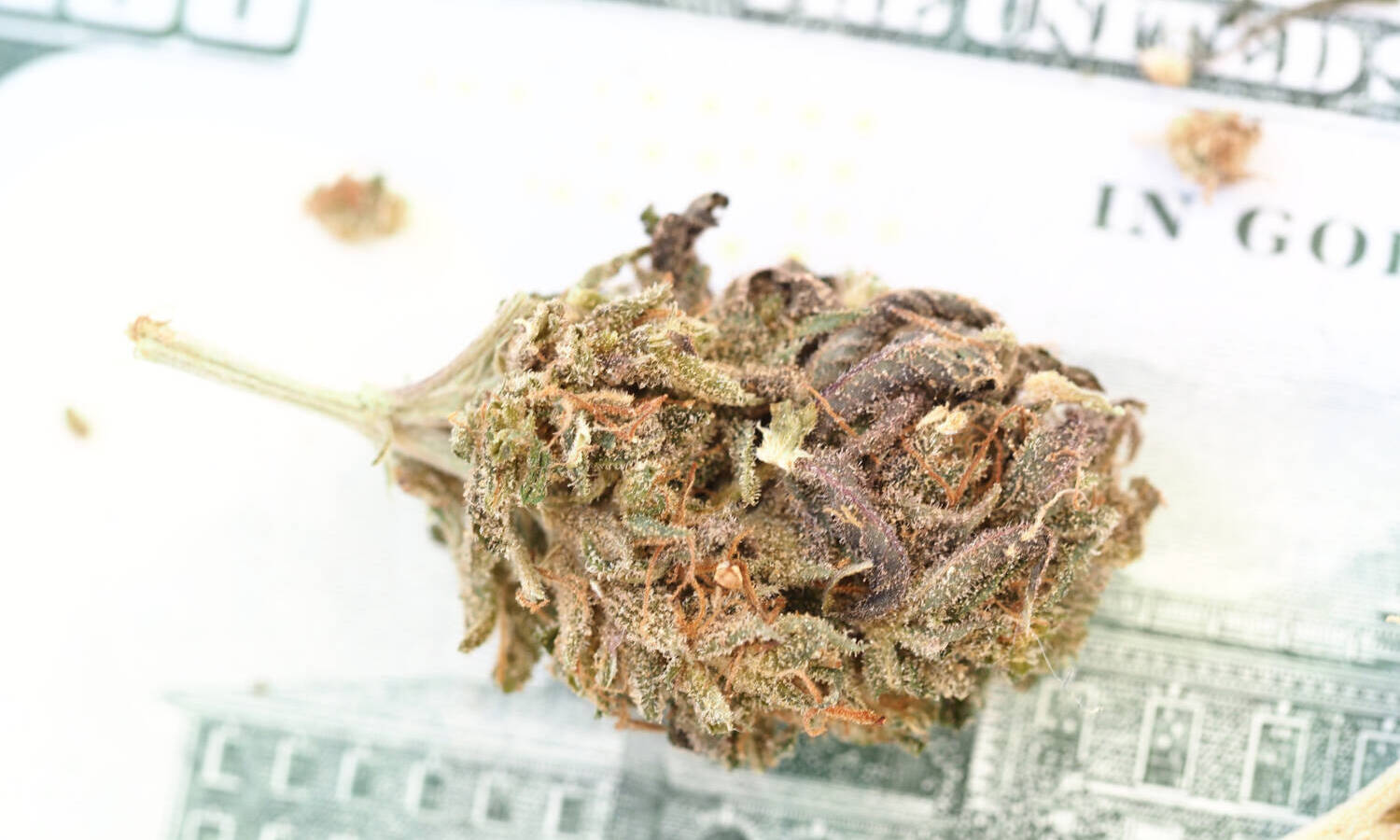
The cannabis industry faces a sobering 2023
Without much meaningful development regarding the legalization effort in 2022, many sobering issues will likely carry over into 2023.
Layoffs will continue, and ongoing price erosion and competition from illicit channels will drive consolidation of brand shares in mature markets. Legacy West Coast operators will continue to be bogged down by legislative limbo, lack of access to banking services and an incredibly competitive gray market not bound by onerous tax rules – which in turn will result in more operators fleeing the troubled market.
Photo by megaflopp/Getty Images
Additionally, as cash becomes more expensive and harder to come by, businesses will become more rigorous in capital management and budgeting.
“It is painful to watch as more cannabis companies fail,” said Patrick Rea, managing director of Poseidon Asset Management. “This culling will thin out the competitive herd and give more power to the incumbent incumbents — increasingly MSOs — with their lower cost of capital and growing footprint of assets and operations.”
However, there are reasons for hope.
New and emerging adult markets in the Northeast and the Florida medical market should see significant growth over the next year.
This is supported by increasing market access. According to BDSA analyst Brendan Mitchel-Chesebro, half of the US population over the age of 21 has access to or resides in a state where adult use is legal, with more than half being registered as consumers in the past six months.
“Even though there are still these price compression issues, although there are still regulatory issues — people are waiting for the SAFE Act to pass, people are waiting for 280E reform — there are still many reasons why we believe there is there will be tremendous growth in many of these markets,” he said.
Probable Winners
Many in the industry remain bullish on Florida, especially as it gears up for a well-funded adult ballot initiative in 2024. BDSA believes Florida will be the largest contributor to nationwide sales growth through 2026 with $2.7 billion in projected medical sales next year.
New York could also prove to be one of the biggest growth opportunities in 2023, although the state’s ability to get more adult retail outlets up and running will be the biggest indicator of progress — as a looming sticker shock awaits legitimate businesses.
“In our opinion, that would effectively hurt the illicit market the most, and that’s why some markets that have been operating for a few years are still having issues with[the gray market],” Mitchel-Chesebro said.
In the Midwest, Missouri holds promise for out-of-state MSOs and large vertical operators. Friendly state taxes, good product allocation backed by a growing retail presence, and a smooth compliance process could make all the difference in the Show Me State.
 Photo by Nikolay Ponomarenko/Getty Images
Photo by Nikolay Ponomarenko/Getty Images
Additionally, cross-border traffic from Arkansas and Kansas, which have fallen short in their own legalization efforts, should boost sales in the new market, which is expected to launch in February.
RELATED: The top 5 cannabis scandals of 2022
Cy Scott, CEO of cannabis data company Headset, expects that Missouri’s adult-use launch will put additional pressure on the Illinois market to speed up licensing given the number of already-licensed medical dispensaries being converted to adult-use locations.
If the launch is successful, BDSA predicts sales of approximately $270-$280 million for adult use in 2023. Taking into account the maturing medical market, Missouri could well reach $730 million in total legal sales.
More normalization
The new year could also bring additional normalization of consumption lounges and major retail relocations to increase footfall and basket size, Mitchel-Chesebro said.
Pharmacies may begin to move away from the “deli layout” in favor of a more open retail floor plan similar to Apple Stores. The BDSA analyst pointed to places like Planet 13, where staff stand on the floor to help shoppers, but customers are free to move around and look around and view showcases.
RELATED: What went right, what went wrong, and what went sideways: 2022 in cannabis
“I think that’s going to be a big shift when we talk about store sales,” Mitchel-Chesebro said. “I think a lot of people are realizing that it’s more accessible, especially for newer consumers.”
Still, convenience is king in the industry, which should see a stronger push towards direct consumer sales with curbside delivery and collection services.
“The missing component is capital”
Morgan Paxhia, co-founder and managing partner of Poseidon Asset Management, said this year will be “the most forked developments we’ve seen in the legal cannabis industry.”
Paxhia is forecasting the fullest year of defaults, liquidations, and state-level bankruptcies the legal cannabis industry has ever seen — especially given the sobering doldrums in major federal bank legislation.
“We’re seeing this cycle finally coming to a head as strained capital markets have persisted for so long, combined with onerous cannabis taxes, deflationary cannabis prices and inflationary costs,” he said. “This cycle has been well on its way and COVID has disrupted it like many other industries. We believe that most of this stress occurs in smaller companies.”
 Photo by OlegMalyshev/Getty Images
Photo by OlegMalyshev/Getty Images
However, Paxhia also sees a healthy return of mergers and acquisitions for many areas of cannabis, such as B. Operators, additional technologies and hydroponics. “We see this being driven by companies that continue to seek operational efficiencies, scale and greater competitive exposure.
“We’re seeing this internal digestion phase taking its course and companies going on the offensive again,” he said. “We also wouldn’t rule out activity, not likely M&A activity per se, with mainstream strategies like alcohol, tobacco, CPG.”
A significant repatriation of equity flows after a protracted bear market is also possible, likely benefiting the largest companies first as the perceived risk is lower.
“Big picture, we now know more than ever about how to run a successful legal cannabis business. There are more experienced operators than ever. There are more rule of law than ever before,” Rea remarked.
“The missing component is capital.”

Post a comment: